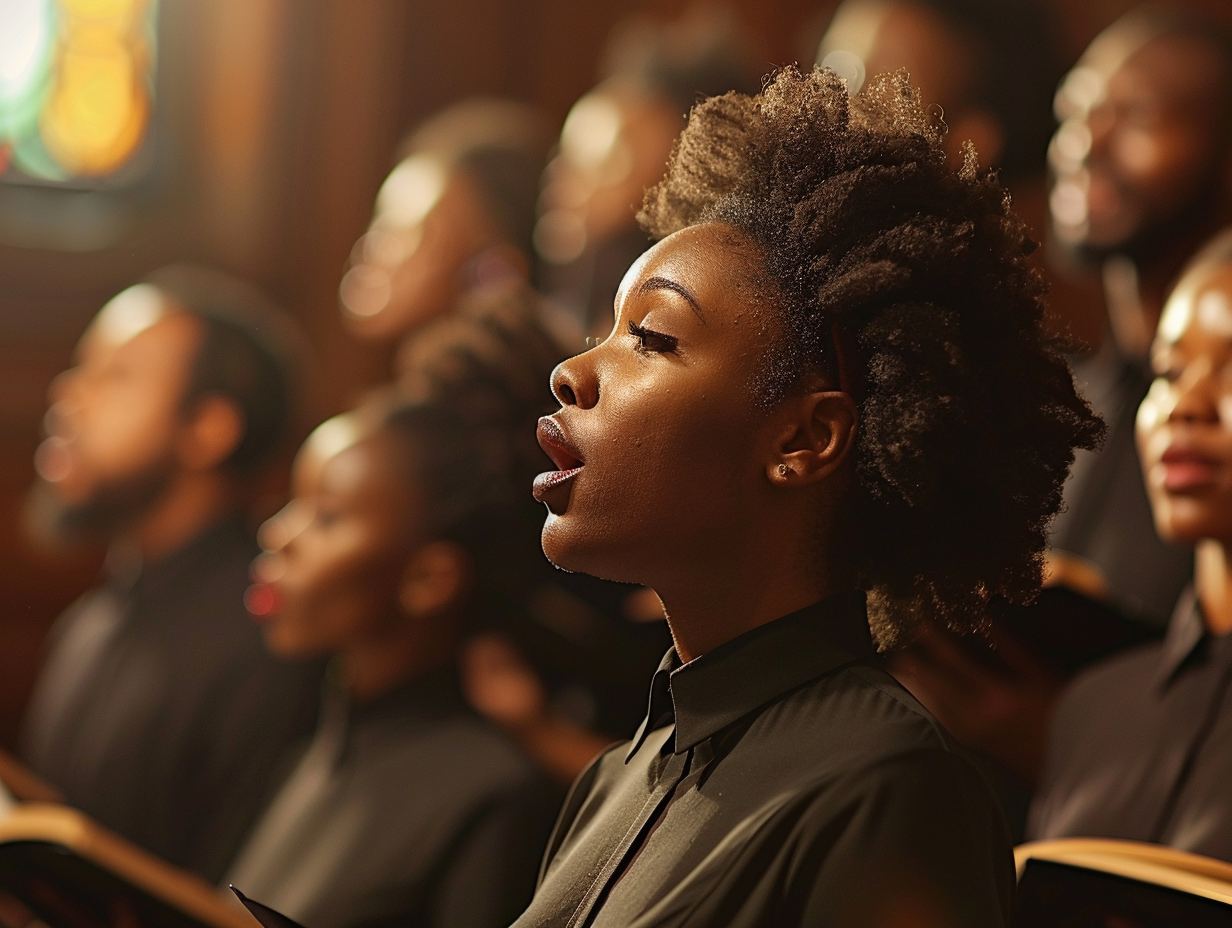Gospel songs continued to evolve and inspire throughout 2024, bringing together traditional spiritual elements with contemporary sounds. These songs offered comfort, hope, and spiritual guidance during both challenging and joyful times, showcasing the genre’s enduring influence on modern music. The year marked significant achievements in production quality, storytelling, and musical innovation.
A year of powerful collaborations
The most striking trend in gospel music this year was the increase in powerful collaborations. “One Hallelujah” brought together an unprecedented lineup of Tasha Cobbs Leonard, Israel Houghton, and Erica Campbell, featuring Jonathan McReynolds and Jekalyn Carr. This supergroup collaboration demonstrated the unity within the gospel community and created a new benchmark for collaborative worship music. The track’s seamless blend of voices and styles showcased each artist’s unique gifts while creating a powerful collective sound.
Traditional meets contemporary
The year saw a beautiful blend of traditional and modern gospel styles. The Mississippi Mass Choir’s “Only One Way Home” maintained the classic choir sound that has uplifted generations, incorporating traditional harmonies with contemporary production values. Meanwhile, artists like Chandler Moore with “Lead Me On” brought fresh approaches to spiritual music, integrating modern worship elements with gospel foundations.
Breaking down the standout tracks
Yolanda Adams’s “Church Doors” emerged as a powerful anthem of welcome and inclusion, with its message of open sanctuary resonating particularly well with congregations seeking to rebuild community connections. Tasha Cobbs Leonard delivered two major hits this year: “Do It Anyway” showcased her signature powerful vocals and encouraging message, while her participation in “One Hallelujah” demonstrated her collaborative spirit. Kenny Lewis & One Voice featuring Kim Burrell on “Call His Name” combined traditional gospel choir arrangements with contemporary R&B influences, creating a bridge between musical generations.
The evolution of production techniques
The year saw significant advances in gospel music production. Many artists embraced new technologies while maintaining the authentic feel essential to gospel music. Enhanced live recording techniques captured the energy of worship moments, while strategic use of virtual choirs expanded the sonic possibilities. The integration of modern instruments with traditional gospel arrangements created fresh, engaging soundscapes.
Impact on worship experiences
These songs transformed worship experiences across the country, enhancing congregational participation through accessible melodies and providing new resources for worship leaders and choirs. They created moments of profound corporate worship and offered versatile arrangements suitable for various church settings.
Chart performance and recognition
Many of these songs achieved significant commercial success while maintaining their spiritual integrity. Multiple tracks reached Billboard’s Gospel Airplay chart, and streaming numbers showed substantial growth in digital consumption. The songs received numerous award nominations and wins at major gospel music ceremonies, demonstrating increased crossover appeal while maintaining their gospel roots.
Behind the creation process
The creation stories behind these songs often proved as inspiring as the music itself. Tina Campbell revealed that “Pray For Me” came from a place of personal struggle, while Jason Nelson’s collaboration with Melvin Crispell III on “Yahweh” developed organically during a worship session. DOE wrote “Holy Hands” during a particularly challenging period of ministry, channeling those experiences into powerful praise.
Cultural impact and community response
These songs resonated beyond traditional gospel audiences, finding their way into various ministry contexts and connecting with younger generations. Their presence on mainstream platforms grew, while their message remained authentically gospel. The music served multiple community needs, from providing comfort during challenging times to celebrating life events and supporting social justice initiatives.
Looking toward the future
As gospel music continues to evolve, these songs set a high standard for the future. They demonstrate how the genre can embrace innovation while maintaining its spiritual core and connection to listeners. The increased focus on collaborative projects, enhanced production values, and expanded global reach suggests an exciting future for gospel music.
Remember, while this list represents some of 2024’s most impactful gospel songs, the genre’s influence extends far beyond these twenty tracks. Each song continues to touch lives and inspire faith, showing the enduring power of gospel music in connecting people with their spirituality and each other.













